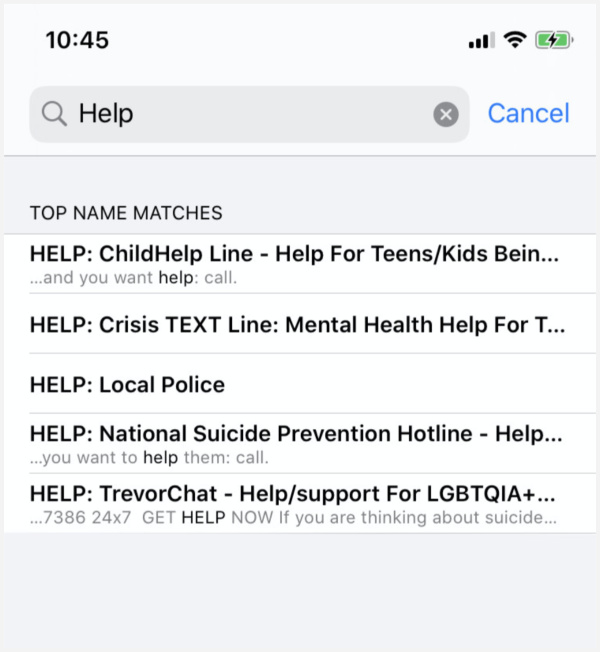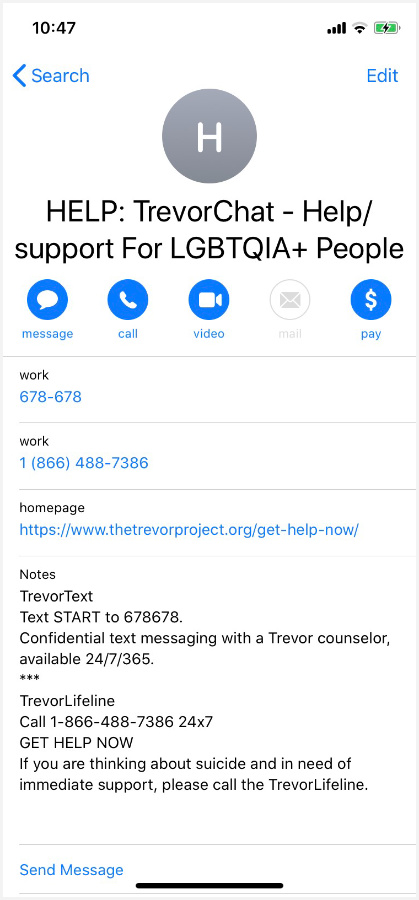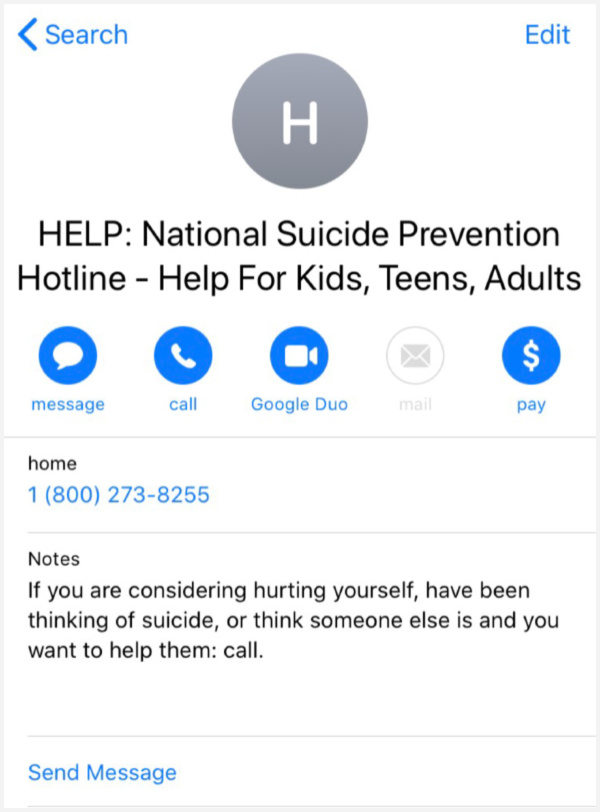We don’t want to think about it, but we need to.
If your tweens and teens have phones, I encourage you to add some Emergency Contacts.
Not just the neighbors whose houses they can pop over if they lock themselves out, or Grandma to come pick them up from practice in a pinch.
I mean for the REAL emergencies. Theirs. Someone else’s.

Our tweens and teens are not always by our side—nor should they be. They’re growing up, getting independent, learning how to navigate this world, seeing what’s going on around them, making choices.
More and more often, they figure things out on their own (or at least wing it), maybe consult with friends, or eventually ask us for help once they muster the right words to express what it is they need help with.
But sometimes they need the kind of help that has to happen RIGHT THEN. Or are witnessing something that tells their gut that a friend/loved one/stranger needs help RIGHT NOW.
A 911-ish situation for a very specific kind of help.
So I added a whole section of emergency contacts to my kids’ phones (and mine) in a way that makes it easier for them to find those resources and decide which is the right one in the moment.
Because whether we want to think about it or not, those moments do come up. I believe it’s better to be prepared just in case than cross our fingers and hope.
First, I looked up some resources, like (but not limited to):
- The ChildHelp Line for abuse (aka National Child Abuse Hotline).
- The Crisis Text Line for mental health support via text, which is often how teens feel most comfortable communicating.
- The local police.
- The National Suicide Prevention Hotline.
- The TrevorText (text messaging support) and TrevorLifeLine (phone) for help/support for LGBTQIA+ people.
Then I not only plugged in their numbers, but also added what they did and how they did it in the Notes section of the Contact. Information to help my kids know whether they’re picking the right number for help.

Then I put HELP in front of the name of each one, so when they’re feeling overwhelmed and can’t think of who to look up, they know to just type in “HELP” on their phones and the list of options will come up.
They know 911. They know HELP. I’m trying to keep it simple here.

And I talked to them about why to or not to call certain ones. For example, the local police have helped me break into my own home when I’ve locked myself out, assisted in an attempted theft of our car, etc., but there are situations/emergencies for which they are not the best first call to make.
My kids know I am always there for them. But sometimes it may feel like I’m not. Whether because I’m simply not physically in the same room or because their friend asked to keep their LGBTQIA+ status totally private or because of some other thing a teenage brain might drum up.
While I prefer for them to come to me (and they normally do), I 100% support my kids having the resources in hand and the ability to get help for themselves and others right away on their own if they need to.
I will not let my feelings get hurt, because in the end the most important thing is that the person in crisis—whomever it may be—gets help.
This is why I already have some of these numbers hanging inside the door of the snack cabinet my kids and their friends frequent. It’s there if they need it, but I sure hope they don’t.
(These numbers are not a secret, and I’m confident their Googling skills could help them find them if they wanted to. I’m trying to send a message that we’re a safe place for all, and let them know there are other safe people out there, too, if they need them.)
It’s why I’ve talked my kids through how to use these emergency contacts, how I support their decision-making, how to come to me either before or after using them (whether for themselves or someone else).
I know not every kid’s parents talks to them about the scary stuff (often not even intentionally). I don’t talk to my kids about everything under the sun just because I want them to know about it. I don’t read up on the struggles tweens/teens face and take classes to better understand it and watch movies with my kids while talking through some of the awful/tricky/hard stuff so they better understand it for kicks. I do so because this way I can guide them into becoming knowledgeable, supportive resources.
They can become the helpers. Helping themselves. Helping others.
Yes, I will use my grown-up decision-making abilities and experience to follow up on my kids’ use of reaching elsewhere for support, whether for themselves or others. But if giving them the just-in-case emergency contacts ends up saving even one life—literally or metaphorically—I’ll be grateful that I tried in even one little way to help.
Because we all need a little extra help sometime.
Kim Bongiorno is an author, full time freelance writer, and the blogger behind Let Me Start By Saying. Learn more by connecting with her: Facebook · Twitter · Instagram · Goodreads
Leave a Reply